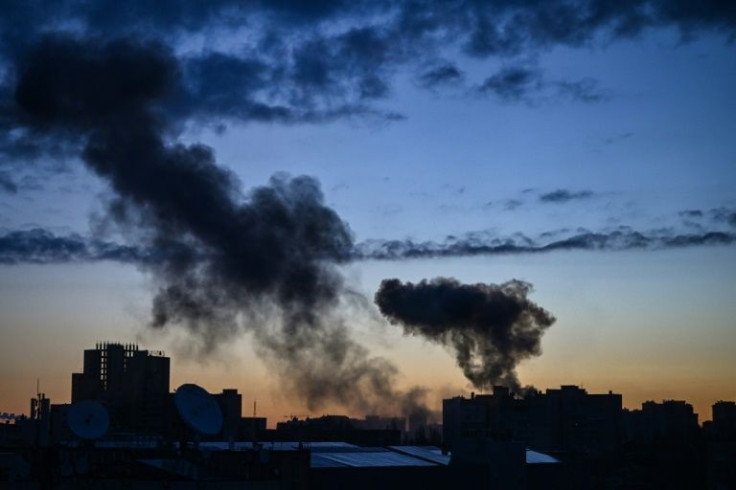Amid Rising Nuclear Tensions, US To Replace Older Gravity Bombs In Europe Sooner: Report
KEY POINTS
- The B61 bombs have seen several versions, most of which have since been retired
- The upgraded B61-12 consolidates earlier versions of the bomb into a more accurate weapon
- Depleting military resources may force Putin to dip into Russia's tactical nuclear arsenal
Amid heightened fears of a Russian false flag operation as Ukraine looks to gain further momentum in its counteroffensive against the invaders, the U.S. is accelerating the fielding of the upgraded air-dropped gravity bomb at NATO bases in Europe.
U.S. officials reportedly told NATO allies during a closed-door meeting in Brussels about the replacement of the older version of B61 nuclear bombs, with the more accurate B61-12 variant. Originally slated for next spring, the deployment is now planned for December, as per a Politico report.
The upgrades pertain to only the non-nuclear aspects of the unguided gravity bombs, the report said, quoting Hans Kristensen, the director of the Nuclear Information Project at the Federation of American Scientists. The improvements involve the removal of the parachute and installing a new tail kit, among other modifications, to achieve "significantly greater accuracy."
The B61 is a family of nuclear bombs first developed in the early 1960s and is considered one of the oldest and most versatile of the numerous nuclear warheads in the U.S. stockpile. Approximately 150 of these are reportedly stationed in five countries in Europe: Belgium, Germany, the Netherlands, Italy and Turkey.
Although nuclear weapons are a core component of NATO's overall capabilities for deterrence and defense strategy, as a military alliance, it lacks direct control over any such weapons. The nuclear weapons that are part of the alliance remain under the firm control of three key member-states: the U.S., the U.K. and France.
Amid rising tensions with Russia, Poland has requested for nuclear weapons to be based on its territory, as per The Guardian, while other reports suggest that Finland too may be open to the prospect.
Developed shortly after the Cuban Missile Crisis, the B61 bombs have seen several versions, most of which have since been retired. Five versions currently in the stockpile were built in 1979-1998.
Under the $10 billion Life Extension Program, the B61-12 has consolidated three earlier versions of the bomb into a more accurate weapon offering explosive yields up to 50 kilotons — more than twice as destructive as the "Fat Man" nuclear bomb in the U.S. dropped on Japan during World War II.
The Politico report said the newer B61-12 bomb is designed to enable the U.S. and allied bomber planes and fighter aircraft — including B-2 and B-21 bombers and F-15, F-16, F-35 and Tornado fighter jets — to carry the weapon, unlike the older versions of the B61. The report also points out that the warhead itself is considered the most versatile in the U.S. arsenal as its explosive power can be dialed up or down depending on the target, making it either a low- or medium-yield weapon.
Although Russia and the U.S. have dismantled thousands of their retired warheads, they still own 90 percent of the world's total nuclear weapons.
The U.S. has an estimated 5,428 nuclear warheads, of which 3,708 are operational and the remaining are meant to be dismantled. In Europe, France and the U.K. are the only countries that possess nuclear weapons, which together are estimated to have 515 nuclear warheads, of which 400 are deployed.
Meanwhile, Russia has an estimated 5,977 nuclear warheads of which 1,588 warheads are currently deployed either on intercontinental missiles or at heavy bomber bases, while about 2,889 are kept in storage and the remaining 1,500 warheads are retired and set to be dismantled.
Fears have been expressed that depleting military resources could force Putin to dip into Russia's tactical nuclear arsenal to achieve victory or at least freeze the conflict in Ukraine.

© Copyright IBTimes 2024. All rights reserved.





















